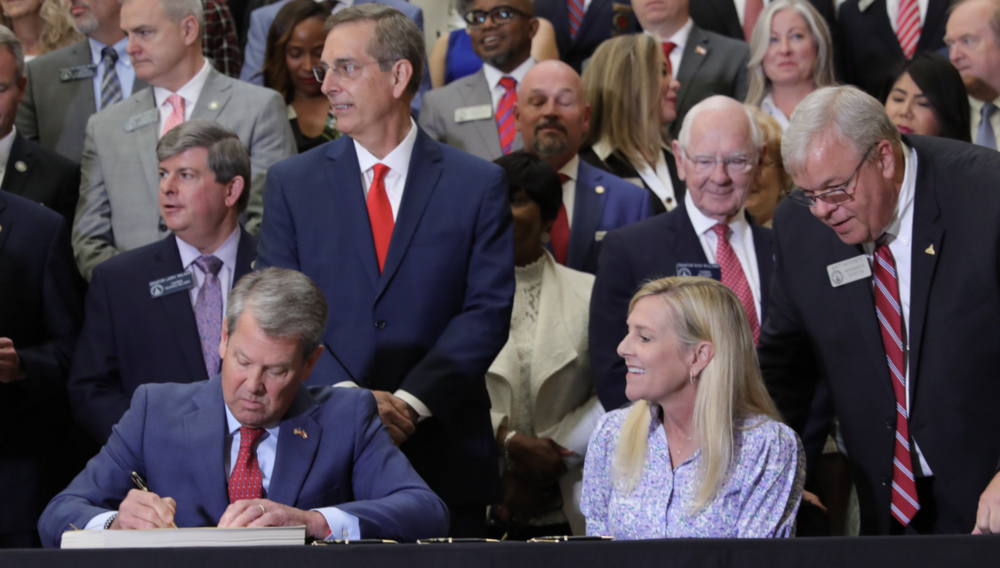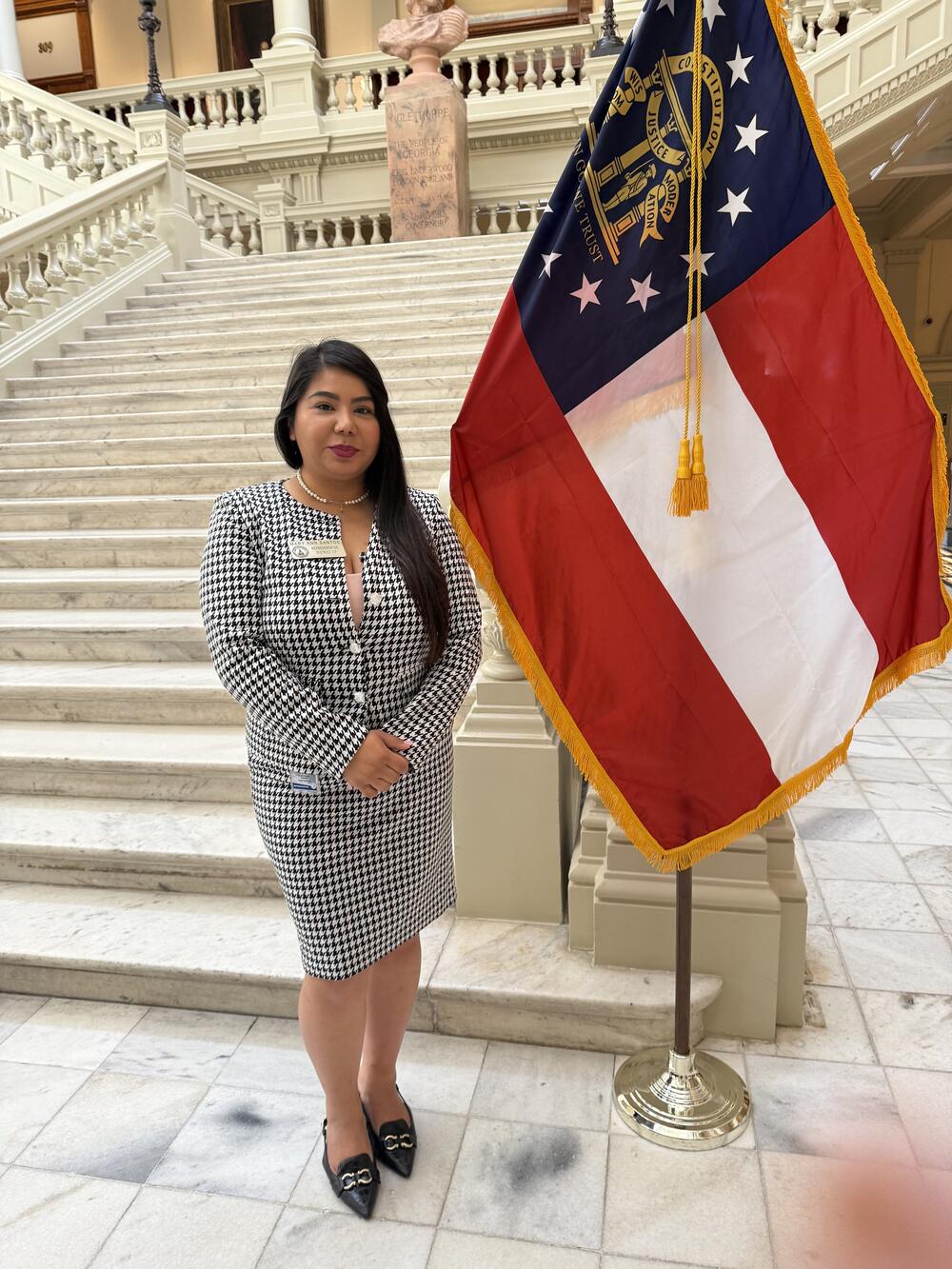
Caption
Gov. Brian Kemp (left) signs bills inside the Georgia Capitol on May 8, 2025 as first lady Marty Kemp (right), Secretary of State Brad Raffensperger (center) and lawmakers watch.
Credit: Governor Brian Kemp / X
In this episode of Lawmakers Huddle, GPB's Donna Lowry speaks with two state representatives about bills they championed during the 2025 legislative session.

Gov. Brian Kemp (left) signs bills inside the Georgia Capitol on May 8, 2025 as first lady Marty Kemp (right), Secretary of State Brad Raffensperger (center) and lawmakers watch.
Georgia legislators are celebrating legislation that will soon become law, thanks to the governor’s signature.
In this week’s Lawmaker’s Huddle, GPB's Donna Lowry looks at some of the personal reasons legislators pushed laws to make meaningful change in their communities.
During the 2025 legislative session, on Crossover Day, freshman Democratic Rep. Mary Ann Santos of McDonough revealed something private about herself on the House floor.
"As a survivor, I would like to thank you for bringing this bill," she said. "I wanted to ask you: Is it not true that this bill ensures that the legal system better acknowledges and experiences that domestic violence survivors and provides them with more avenues for justice and healing?"
"Thank you, well said," said the Georgia Survivors Justice Act author, Republican Rep. Stan Gunter of Blairsville.
Recently, when Gov. Brian Kemp signed the legislation at the Georgia Capitol, Santos watched the signing, then told GPB why she advocated for the bill.
"House Bill 582 is a really important bill from my aspect as a survivor myself of domestic violence," she said. "I think that this 582 will really help other survivors. It's going to allow the courts to take into consideration their experiences during sentencing. A lot of our survivors are victims that have ... Not by choice, made a lot of these choices. So I do think that that needs to be weighed in and we need to protect our communities, including those that are vulnerable and marginalized communities."

Rep. Mary Ann Santos (D-McDonough) poses near the steps of the Georgia Capitol on May 8, 2025.
Santos knows that because she heard from some of them.
"I received a few letters of support from inmates, and that was probably my highlight of this session," she said. "Just knowing that my 10-second remark on the floor that day that we voted on impacted those inmates that saw me. I'm just really grateful for that."
Part of the bill allows prosecutors and the courts to consider whether domestic violence is a factor — to consider a lighter sentence or leniency for a defendant.
"Essentially, what it does is, it will take into consideration the factors of the survivor," she said. "A lot of times that's overlooked, so a person could be sentenced for something without any consideration of the life that led to that day. And so it just is really providing them a platform to voice their trauma, for lack of a better word."
That same day in March, when Rep. Republican Beth Camp of Concord presented HB 331 concerning abuse of animals, Democratic DeKalb County Rep. Karla Drenner spoke up.
"My county has been working substantially on this issue and a couple weeks ago, I went to Walmart on a Saturday morning and somebody tried to sell me puppies from out of a car," Drenner said. "And I just want to say thank you very much for doing this bill. It's good job. Thank you. I appreciate your support."
Camp pushed the bill through to law, making it illegal to sell dogs, cats, and rabbits in parking lots, or at roadside and flea markets.
She talked about it the day the governor signed her bill.
"We found is these are not individuals who happen to have a litter at their home," she said. "These are individuals who are coming in from other states. So we did some clarification in the law. If you have litters at your home, you can sell them at your home at your business at the veterinarian's office, police department, fire department. All those places are perfectly safe in in wonderful places for you to have transaction. But people who are selling animals alongside the road oftentimes have animals that are in deplorable situations and could have links to organized crime because it's cash money coming to them with no strings. And if the dog ends up being sick or having genetic issues that are very costly to the buyer, there's no recourse."
Those animals often end up in already overcrowded animal shelters. The new law will levy fines against violators.